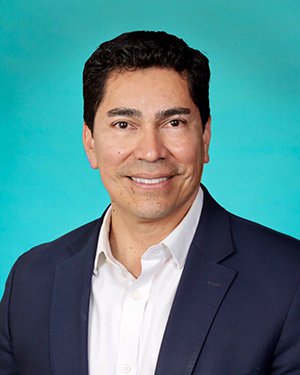Educators can help advance the needs in our nation
Guest Column by Marco Nava
February 8, 2021

President Biden takes office during an especially challenging time in our nation. In addition to some of the more persistent educational challenges, there are more urgent issues that need immediate attention and action. He will need to contain the COVID-19 pandemic, stop and repair truth decay, and ensure the respectful and equitable treatment of all persons. Educational institutions provide an opportunity to address and accelerate this work.
The approval of the COVID-19 vaccine in December 2020 signaled the hopeful return to face-to-face instruction, work and gatherings with family and friends. Production levels that could not meet the current demand and logistical challenges hampered the rollout. Once these challenges are corrected, schools can be at the center of the vaccination effort.
Superintendent Austin Beutner of Los Angeles Unified School District has made a compelling case for the approval of schools as vaccination centers. Schools are neighborhood hubs, situated for easy access, and centers of trust, with nurses and the infrastructure to support community centered vaccination efforts. Additionally, schools can be part of a positive messaging campaign through educating students, families and community members on the safety and efficacy of the vaccine.
Kavanagh and Rich (2018) have researched the phenomena of “truth decay” and characterize it through four trends: increasing disagreement between facts and data, blurring the line between facts and opinions, influence of opinion over fact, and decreased trust in formerly respected institutions of factual information.
Schools can mitigate these trends by engaging students in critical thinking, having students and school-based adults explore their own bias, engaging in critical media literacy, and by exploring diverse perspectives and experiences outside of their personal and digital bubbles. Social media and digital spaces can be mechanisms for siloed information that is amplified through algorithmic learning and reinforcement. We read and listen to what we like, what we view, what we click on. If what we view is based on dis-information, it can echo loudly, creating misinformation caves where reality is blurred.
In this election, the public chose its first African-American, Asian-American, female vice president in California’s Kamala Harris. President Biden and Vice President Harris are selecting people from diverse backgrounds that more closely reflect the American public to fill key leadership positions.
Mirroring this practice, schools are social spaces of connection and harbor opportunities for rich dialogue and experiences where diverse perspectives can be explored and better understood with the goal toward equity. School administrators can create spaces for conversations that address unconscious bias. This requires pedagogical support as well as resources for rethinking what we emphasize in education.
A critical understanding of information and the power it affords is indispensable to a future that is more equitable, one that values diversity, working toward the public good, and that continues to innovate and address the challenges of our world. Innovation is stifled if we are not inclusive of the perspectives and experiences that reflect the richness of human diversity. Each student we work with becomes part of the fabric of humanity, with the potential to address the challenges we face. Our democracy, this great experiment of self-governance by people from all corners of the country, depends on it.
President Biden said, “Leadership, at its core, in my view, is about being personal.” School leaders understand the importance of relational work in order to engender trust and collective action to achieve the vision of student academic and personal success.
Marco A. Nava, Ed.D., is the Administrator, Induction & Credentialing Programs, Human Resources Division, in LAUSD.


